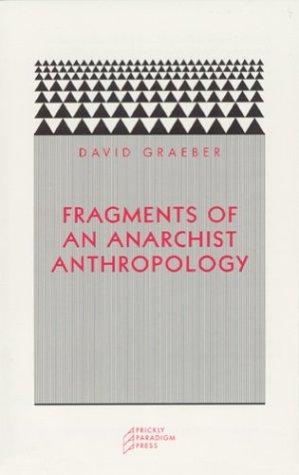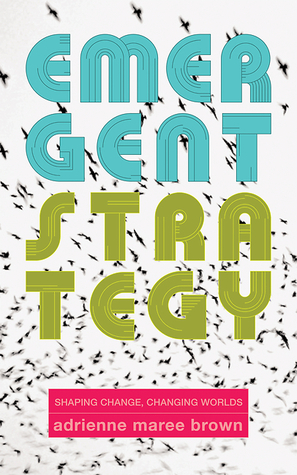It's unbelievable how important this material is — without it, it's almost impossible to escape hierarchy in nominally flat institutions, via the Tyranny of Structurelessness, the Iron Law of Institutions, and other phenomena acculturated by propaganda.
The only thing missing here, and to be fair, I'm sure this is a book topic on its own, is how to actually move an extant organization with perhaps the right idea to actually adopt these things in practice when, of course, is itself an org that one does not have hierarchical control over! Driving adoption, i.e.
It's also worth reading for their collation of anarchist sample constitutions alone — what a collection! IWW, Emma Goldman, Occupy, Öcalan/ Democratic Confederalism, Makhnovists, …
Major learnings:
- Constitutions don't have to be an inherently conservative or regressive; it's just the way that we've been interacting with the specific statist constitutions that makes them so, meaningfully for us, by making them very hard to reform and revisit.
- Not all decisions can or ought to be discussed by every single person in every single group all the time! This is impractical and will inevitably lead to people taking shortcuts, and is worse than forming a structure by which consensus can be reached without every single person weighing in, based on (the below):
- /subsidiarity/ - decisions being made by people most affected by them
- It's important to discuss /which/ decisions need /how much/ buy in from how many people.
- New(er) members often experience rules by an established group as oppressive, as they weren't part of the process by which they were created (I've definitely experienced this, to put it mildly!). This can be offset by regularly revisiting rules (which also has other benefits!)
- Not everyone gives input the same way! Some people may be engaged by verbalizing meetings; others, via documents; others (perhaps most?) sort of intermittently while doing a third task, causally.
- Getting an external person's take on what the org stands for is a much better reflection than whatever is written on the mission statement page.
Concrete learnings:
8. Attending 3 meetings within 6 months is one criteria (used by Heartwood Cohousing) to assign people as voting members or not
9. It's useful to have the person blocking a proposal be the one that becomes responsible for organizing the follow-up meetings to attempt to get a revised proposal consensually accepted.
10. Spamming, which ought to be guarded against, can include just posting links or propaganda to Signal or whatever without actually adding / having quality discussion on it. (a few people do this in my groups 👀…) (from Occupy London)
11. Institutions ought to guard against folks using the name publicly for promotion, or otherwise, without actual consensus from folks the institution!
12. (Already put this in practice!): emotional and practical support should be formalized; otherwise, both giving and receiving support will be unfairly distributed.
Relevant quotes for 2. through 4.:
“How much shared decision-making you do will also depend on your purposes and how closely you are working together. Most groups need to balance a need to get everyone’s consent on important decisions with a need for efficiency and minimising time spent in meetings. Working out which decisions really need everyone’s input, which can be delegated or represented, and who is entitled to decide (groups or individuals?) is critical to an effective coalition. “Everyone deciding everything” may sound democratic, but in reality it may be a recipe for very long and boring meetings that no one comes to! In practice, it may be better to apply a principle of decisions being made by people who are fundamentally affected by them (subsidiarity again). In this way, coalition-wide decision-making can be reserved for questions with a far-reaching impact like strategy or the annual budget, while day-to-day decision-making happens in working groups.”
“ How decisions are made is not separate from deciding which issues need a decision. How the organisation is structured will shape what sorts of decisions it is possible to make, when and where.”
Relevant for 6:
“Conscious conversations about policy or group aims require that extra care is taken to be accessible. More people are likely to respond to “Shall I check the group email account?” than “What guidelines do we need for the ‘communications officer’ role?” The second question is easier for people to provide input on if they already have a lot of experience in groups. Plus, this second question is more abstract, which works better for some people than others. Using concrete examples and everyday language can help a wider range of people participate. This in turn means the agreements are shaped by more members of the group, in a more genuinely consensual way.”
Relevant for 9:
“f one or more members red cards a proposal, the red card holder(s) is responsible for organizing meetings with the Topic Guide(s) who presented the proposal or their appointed representatives, and any other interested members in a series of solution-oriented, consensus-building meetings. The purpose of the meetings is to work through the concerns and mutually agree on a revised proposal that addresses the same problem as the original blocked proposal. These meetings must take place within two months. It is recommended that four meetings are held, if needed, to find resolution and create a revised proposal.
If a revised proposal is created within two months of the red card, the revised proposal is brought to the community for consideration as a new proposal.
If resolution cannot be achieved and no revised proposal is created within two months of the red card, the original blocked proposal is brought to the next available Community Meeting for a Fallback Supermajority Vote. The original blocked proposal passes, resulting in a community decision, if a super-majority of 80% of the members present at the Community Meeting vote for the proposal.”
Relevant for 11:
“Autonomy and self-promotion. Any statement or declaration not released through the General Assembly and made public online should be considered independent of Occupy London. Self-promotional links to one’s own blog, video channel, product, business, etc., even if related to Occupy, are limited to one’s own forum signature and user profile.”
Relevant for 12:
“Mutual support: Thriving coalitions are often maintained by personal relationships in which people offer practical and emotional support. When these relationships are purely informal, they are often unfairly distributed. People with the skills to ask for what they need inevitably receive a lot more care, and people with the skills and willingness to offer end up shouldering an unfair burden of the emotional labour. Try experimenting with more structured ways of creating supportive relationships, for example, a mediation and listening team, a buddy system, peer support groups, or action learning sets.”












